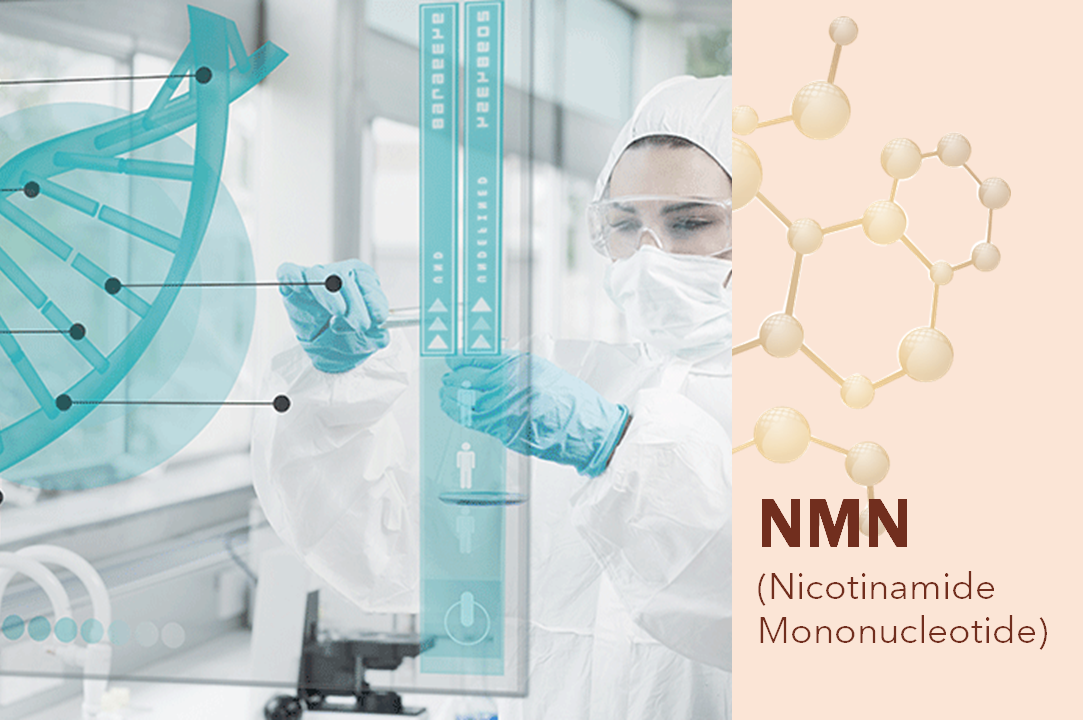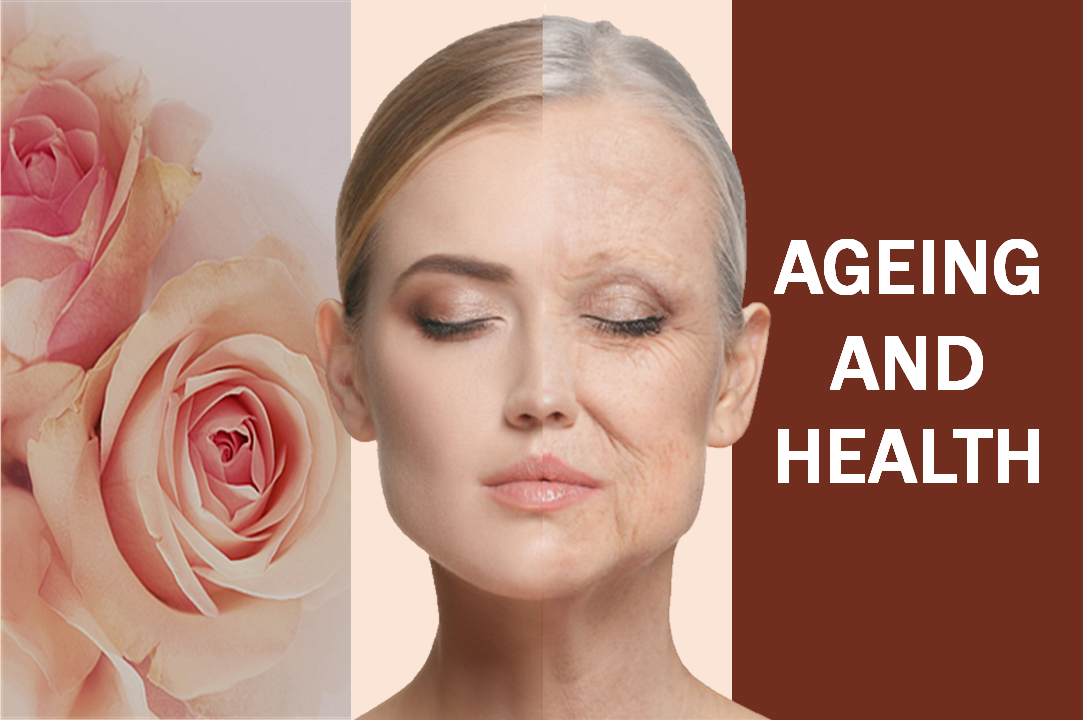
NMN (Nicotinamide Mononucleotide): Benefits, Side Effects, and Dosage
If you’re interested in aging and longevity innovations, you may have heard of NMN, which stands for nicotinamide mononucleotide.
It’s a molecule your body makes naturally, but some people also take it as a supplement. Scientists, such as Harvard University professor and longevity expert David Sinclair, are currently looking into its promising potential benefits for many different areas of health, including:
- - longevity
- - diabetes
- - liver conditions
- - brain health
- - heart health
- - exercise training
- - sleep
Research on the effects of NMN supplements is still emerging, and more investigation is needed.
We’ve partnered with Wonderfeel®, a bioscience and wellness-tech company based in San Francisco, California, to bring you a primer on NMN and the research available so far on its potential benefits, optimal dosage, side effects, and safety.
What is nicotinamide mononucleotide (NMN)?
Put simply, NMN is a naturally occurring molecule that helps power your body.
NMN is a type of molecule called a nucleotide. Nucleotides play many roles in your body, including as the building blocks of DNA.
Within your cells, NMN is converted into another molecule known as nicotinamide adenine dinucleotide (NAD). Your body needs NAD for a variety of functions involved in metabolism and energy production.
You might think of NMN as raw material and NAD as the refined version that your body can actually use.
The amount of NAD your body can make depends on the amount of NMN available in your body.
Benefits of NMN
All the cells in your body use NAD and therefore require NMN, its precursor, to function properly. NAD helps cells regulate a number of essential functions that help keep your cells running smoothly, including:
- - energy metabolism
- - DNA repair
- - gene expression
- - cellular stress responses
It’s essential that your cells have plenty of NMN to produce enough NAD to support these functions.
Your NMN levels naturally decline over time, and, as a result, your levels of NAD decline, too. This may contribute to some of the health effects you might experience during aging.
For example, research has shown that people with different age-related conditions, including diabetes and liver diseases, may have lower levels of NMN and NAD.
Test-tube and animal studies also suggest that NMN may play a role in other aspects of aging, including heart and brain health.
NMN vs. NR
If you’ve heard of NMN, you might have also heard of nicotinamide riboside (NR). NR is another molecule similar to NMN that people also take as a supplement for healthy aging.
Evidence suggests that the body converts NR into NMN, which then is converted into NAD.
Potential benefits of NAD
Since taking NMN may help your body produce more NAD, it’s also important to consider the research behind the benefits of NAD. Studies investigating NAD shed light on its potential benefits:
- It may increase longevity. In your cells, NAD activates a group of proteins called sirtuins, which help repair your DNA. The activity of sirtuins is linked to longevity. On the flip side, low-NAD levels are associated with age-related diseases.
- It may have protective effects on the brain. NAD is thought to modulate the production of a protein that helps guard cells against impairment of mitochondrial function and oxidative stress. These cellular stressors are related to some neurological diseases, including Alzheimer’s disease.
- It may help reduce heart disease risk. Research in mice has found that high NAD levels in the blood reversed age-related arterial damage, which may help guard against heart disease.
- It may protect against cancer. Elevated NAD levels may help protect cells against oxidative stress and DNA damage, which are associated with cancer development.
- It may help with jet lag. Research suggests NAD may help adjust your internal clock, potentially helping ease jet lag or other circadian rhythm disorders.
- It may help aging muscles. Studies in older mice have shown that high blood NAD levels helped improve muscle function, strength, and endurance in older mice.
It’s important to note that these benefits were found for NAD, not for NMN specifically. More research on the benefits of NMN and NAD is needed.
Recent research has found that taking NAD as a supplement doesn’t lead to the same potential benefits — but taking NMN can.
“The real breakthrough that occurred recently is our understanding of how to get NAD levels closer to those of our youth,” says Professor Andrew Salzman, MD, a Harvard Medical School alumni and a prominent drug inventor who’s leading NAD and NMN research at Wonderfeel.
“We now know that it can’t be done by delivering NAD either orally or by IV — because NAD has no mechanism for entering the cell.
“However, it can be done by providing the starting material for NAD, which is NMN. Cells have evolved a receptor for NMN — it’s a special protein on the surface of the cell which attaches to NMN and shuttles it into the cell. Once inside, NMN is converted by cellular enzymes to create NAD.”
Benefits of taking an NMN supplement
Given the benefits of NMN on human health, some experts believe that taking an NMN supplement can help reverse the effects of aging. Some even claim that NMN is a proverbial “fountain of youth,” at least as shown in animal models.
Here we take a closer look at the human research on NMN supplementation, including potential benefits, safety risks, and available data on the most effective dosage.
Does NMN supplementation work?
Studies in animal models, especially mice, suggest that NMN supplements can provide various benefits, including reversing aging and improving cognitive health.
But does NMN supplementation actually work in humans?
That’s a hard question to answer at this point. Research on the effects of NMN supplementation in people is relatively new, and very few clinical trials (the gold standard for demonstrating a clinical benefit) have been published.
One study looked at the effects of taking 250 milligrams (mg) of NMN per day for 10 weeks in postmenopausal women with prediabetes and overweight or obesity. Those who took NMN had increased insulin sensitivity and signaling.
Note that two of the authors involved in this study are listed as inventors on patents involving the use of NMN.
Another recent study examined the effects of taking NMN in amateur runners during exercise training. In this study, 48 runners ages 27 to 50 took oral NMN supplements at 300, 600, or 1200 mg per day for 6 weeks or a placebo.
At the end of the 6 weeks, those who received NMN on top of their regular exercise training had increased aerobic capacity compared with those who received the placebo, and the higher doses produced greater increases. The researchers proposed this may have been related to higher levels of oxygen intake.
Another recent study examined the effects of taking NMN on sleep quality in Japanese adults 65 years old or older. Participants in this study received either 250 mg of NMN or a placebo control for 12 weeks.
Although taking NMN supplements did not appear to improve sleep quality, the researchers did see improvements in overall drowsiness and muscle responsiveness in the people who received NMN in the afternoon compared with the placebo group or those who took it in the morning.
Can it help with aging?
NMN and NAD levels naturally decline with age, so many researchers have suggested that taking NMN supplements may help with age-related health concerns.
A study in 10 Japanese men found that taking NMN (100, 250, or 500 mg) increased levels of NMN byproducts in the blood, including NAD.
Insulin resistance can develop with age and is one of the reasons diabetes is more common in older adults. Although studies haven’t specifically looked at the effects of taking NMN supplements, the research available suggests that it may help you maintain or regain insulin sensitivity with age.
More studies on these effects in humans are needed to investigate this potential benefit.
Taking NMN supplements has also been shown to reduce drowsiness and improve muscle responsiveness in older adults, which may improve both physical and mental health with age.
DynAce Rocenta is loaded with pack of polyphenols, vitamins and essential minerals from unique ingredients including NMN. It’s formulated to slow the physical and mental effects of aging.
How can I increase my NMN naturally?
NMN is found naturally in a variety of foods. Some NMN-rich dietary sources include:
- - avocados — 0.36 to 1.60 mg per 100 grams
- - broccoli — 0.25 to 1.12 mg per 100 grams
- - cabbage — up to 0.9 mg per 100 grams
- - tomatoes — 0.26 to 0.30 mg per 100 grams
- - raw beef — 0.06 to 0.42 mg per 100 grams
Small amounts of NMN are also found in cow’s milk, cucumbers, and edamame.
Studies in mice have found that the gut absorbs NMN readily, but more studies are needed to investigate how eating NMN-rich foods may increase NAD levels in your cells.
Is NMN safe, and does it have side effects?
NMN is an ideal supplement to increase cellular levels of NAD because it’s well-tolerated, and both human and animal studies have observed it had minimal side effects.
Research in humans has shown that doses of up to 1,200 mg daily are safe to consume.
Dosage
Given the limited data available on taking NMN supplements, it’s difficult to determine the ideal dose. Studies have found health benefits with doses as low as 250 mg of NMN per day, up to a maximum of 1,200 mg daily.
Only three studies, including those described above, have looked at the effects of taking NMN supplements over multiple doses. Importantly, safety does not appear to differ across different doses of NMN used.
In the study involving amateur runners, the aerobic benefits of NMN supplementation were greater with higher doses of NMN (1,200 mg) compared with lower doses (300 mg). But there was no difference observed in the benefits observed at a high dose compared with a medium dose (600 mg).
Takeaway
Many people, including experts, suggest that taking NMN supplements may provide a variety of health benefits. While animal studies have found the supplement reversed many age-related health effects, the evidence in humans is still limited.
Early studies suggest taking NMN supplements at doses of up to 1,200 mg per day may provide health benefits related to insulin sensitivity, aerobic function, and fatigue, with minimal risk of undesirable side effects.
Before adding any supplements to your diet, it’s important to talk with a healthcare professional about your unique situation and the potential risks and benefits you should consider.
[Credit: www.healthline.com]


